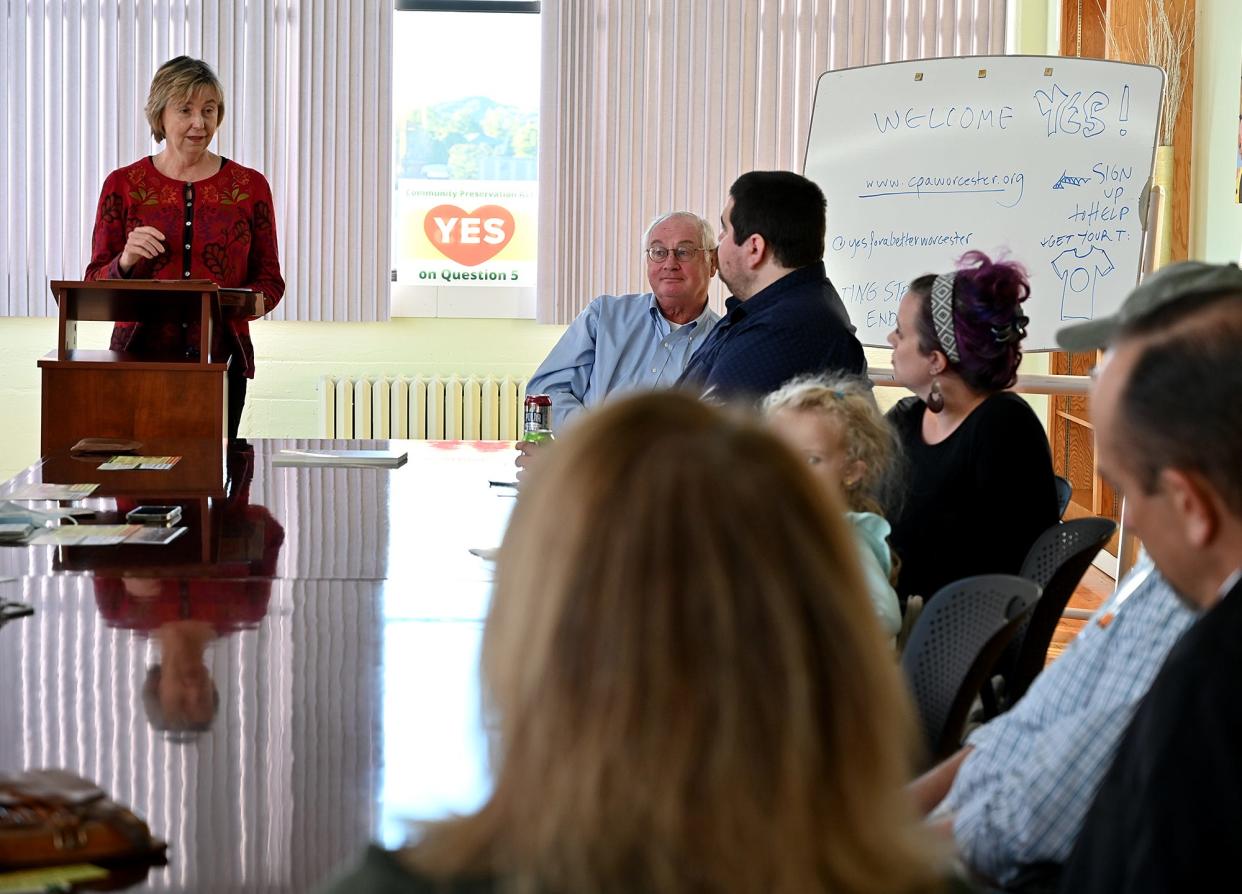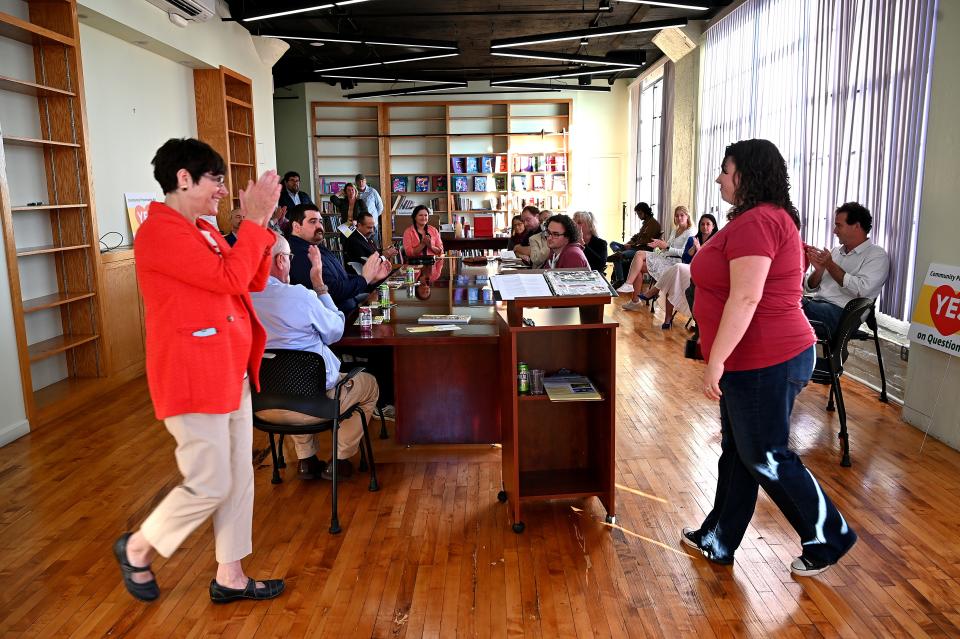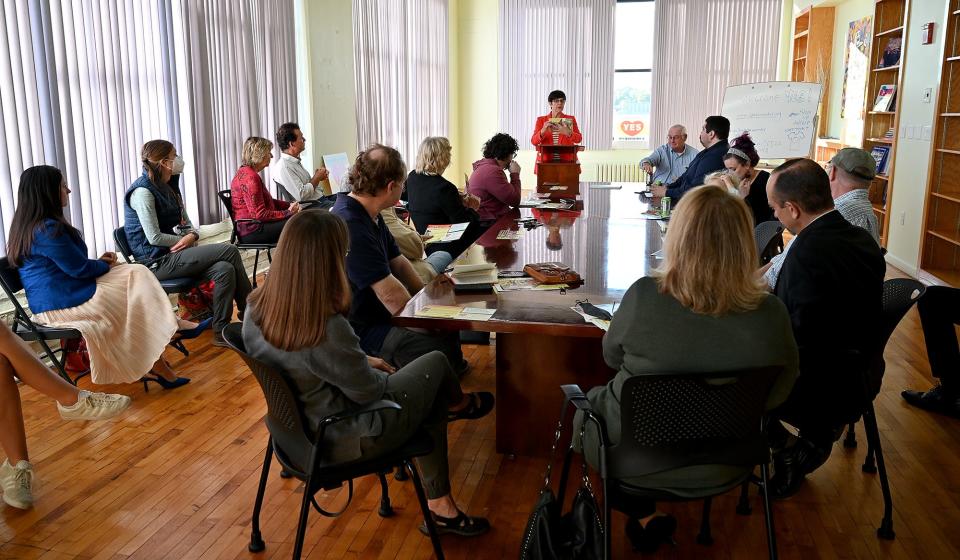Community Preservation Act on city ballot Nov., supporters say it will fund needed projects

WORCESTER — With the Community Preservation Act on the ballot in November in the city, supporters said the added surcharge on the annual assessed property tax will support initiatives that the city needs that other communities are already doing.
The Yes for a Better Worcester coalition, the group supporting the measure, held their official campaign launch Wednesday at the Printers Building.
The Community Preservation Act will appear as question five on the ballot for Worcester residents in the state general election Nov. 8.
The measure would add a 1.5% surcharge on residents' annual assessed property tax beginning in July 2023. The first $100,000 of residential and commercial-industrial property value will be exempt from the surcharge. Low-income families and low- to moderate-income senior citizens who own homes will also be exempt from the surcharge.
The money collected through the surcharge will go into a dedicated fund – a percentage of which is matched by the state – that could be used to finance historic preservation projects, open space acquisition and park improvements, and community housing.

Ann Lisi, a volunteer member of the coalition, said a minimum of 10% of the funds are supposed to be allocated to the three pillars of preservation, open space acquisition and community housing and a maximum of 5% on operating and administrative costs. The rest of the funds will be divided into the three categories based on the recommendations of an appointed committee of residents.
"It's rigid but flexible. You can't play games with it," Lisi said.
While "rigid" in what areas the funding is supposed to go to, Lisi said the measure is also "flexible" in what types of projects can be funded within the three categories. She said the revenue can fund rent relief, construction or developer subsidies under the community housing banner.
The Community Preservation Act was approved to appear on the ballot in April by the City Council. The Yes for a Better Worcester coalition has been pushing the measure for years. In 2018, the City Council rejected a similar proposal to put the Community Preservation Act on the ballot in a 6-5 vote.
Three supporters
Three supporters whose work touched on one of the three categories spoke on how the measure passing would help their causes.
Deborah Packard, executive director of Preservation Worcester, said multiple preservation projects could receive funds through the measure.
"Having a fund available not only to businesses, (but also) to private citizens, to nonprofits to the City of Worcester, would be a real boost," Packard said.
A church with a leak in the roof and removing a slate roof on a building are examples of the preservation projects the measure could fund, Packard said.
District 5 City Councilor Etel Haxhiaj, who is also director of public education and advocacy at the Central Massachusetts Housing Alliance, said that the Community Preservation Act could support the city's new affordable housing trust fund.
"This is one way that we can keep that fund preserved. We can strengthen it and make sure that the money that this particular act would generate goes to people who need it," Haxhiaj said.
In addition, she said communities such as Amherst that have signed onto the Community Preservation Act have used the funds for rental assistance during the COVID-19 pandemic.
"This isn't just a nice thing to have. This is a necessary thing to have," Haxhiaj said.
Colin Novick of the Greater Worcester Land Trust said that since the Community Preservation Act was signed into state law in 2000, he has seen communities who have opted in to fulfill projects that are partially funded by state revenue that Worcester residents are already contributing to while the city could not access those funds.
"I've done CPA projects, just not in Worcester," Novick said. "The heartbreaking part for me is that Worcester is constantly paying into the state fund. We are always putting money in. Meanwhile all these lovely towns get to use that money to make themselves better."

Novick added that the city has underfunded recreation resources that the program could support.
Opposition from Chamber of Commerce
However, the Community Preservation Act has received opposition from the Worcester Regional Chamber of Commerce.
Alex Guardiola, the chamber’s vice president of government affairs and public policy, told the Telegram in August that the city had other revenues that they could use for these purposes and an additional property tax on businesses would be an unneeded burden on businesses.
Based on 2022 assessed property values and including the $100,000 exemption for all properties, the surcharge would cost the median residential property owner $43.46 a year and the median commercial property owner $174.23, according to a recent report by the Worcester Regional Research Bureau.
Lisi said the Chamber has also expressed concern to her that the added surcharge may be disruptive with businesses given the city's dual tax rate for businesses and homeowners where businesses pay a higher property tax.
She said the matter of setting tax rates is a question for the City Council to decide outside of the Community Preservation Act. She added that the Community Preservation Act will benefit residents and those benefits will be passed down to businesses as well.
State Rep. Mary S. Keefe of Worcester was also present to lend her support.
Veterans Inc., the Worcester Democratic City Committee and Worcester Interfaith have also backed the ballot question.
This article originally appeared on Telegram & Gazette: Community Preservation Act on city ballot Nov. would increase taxes

